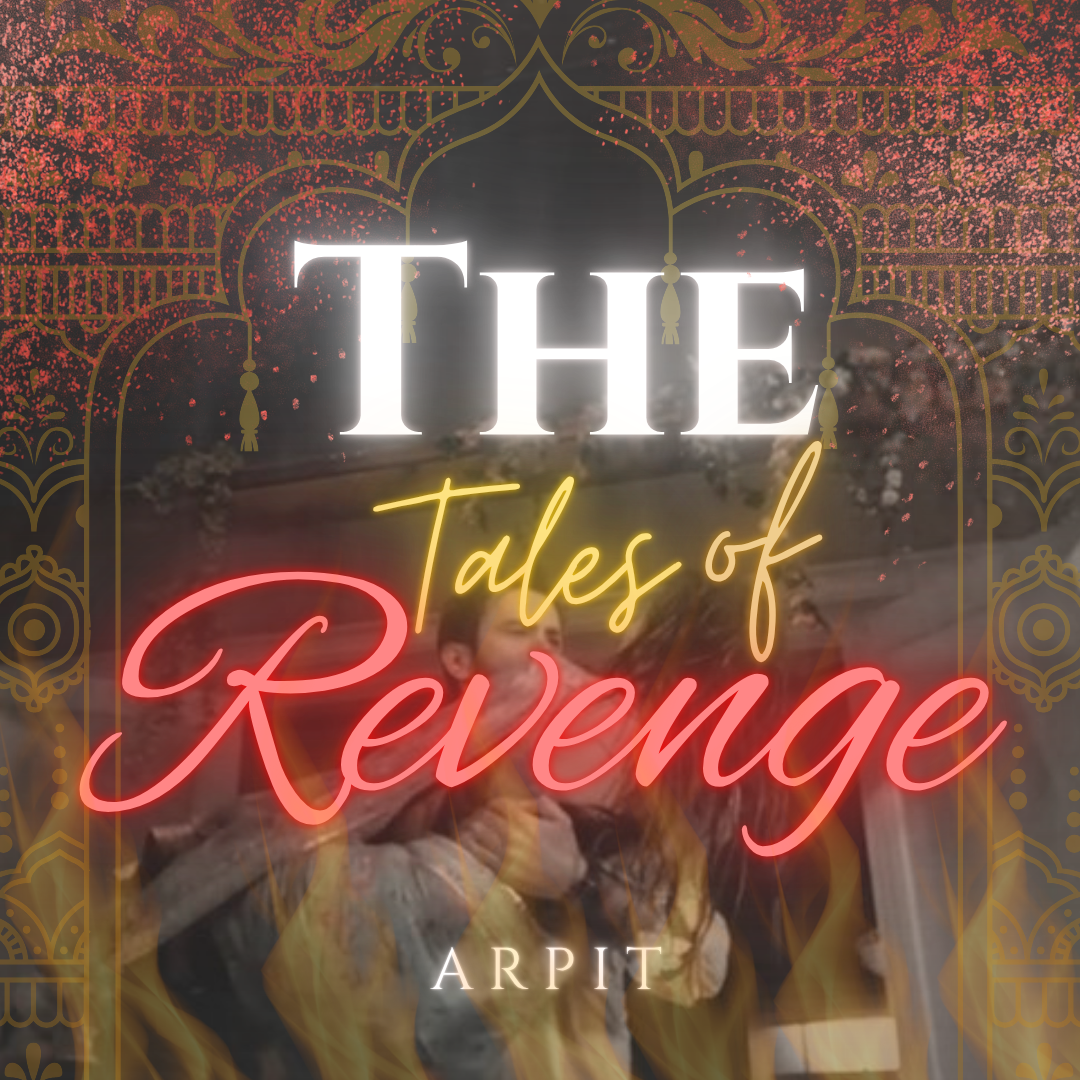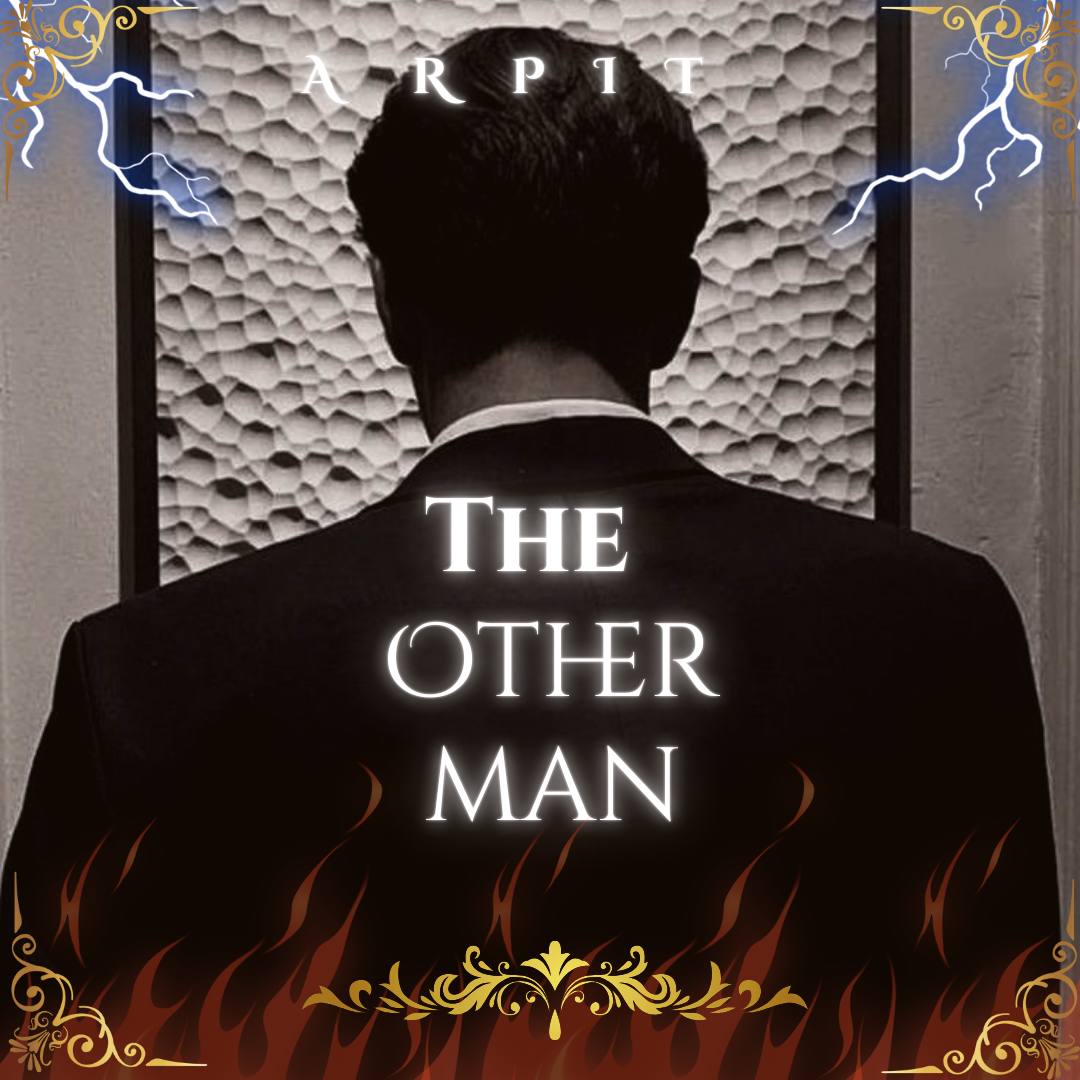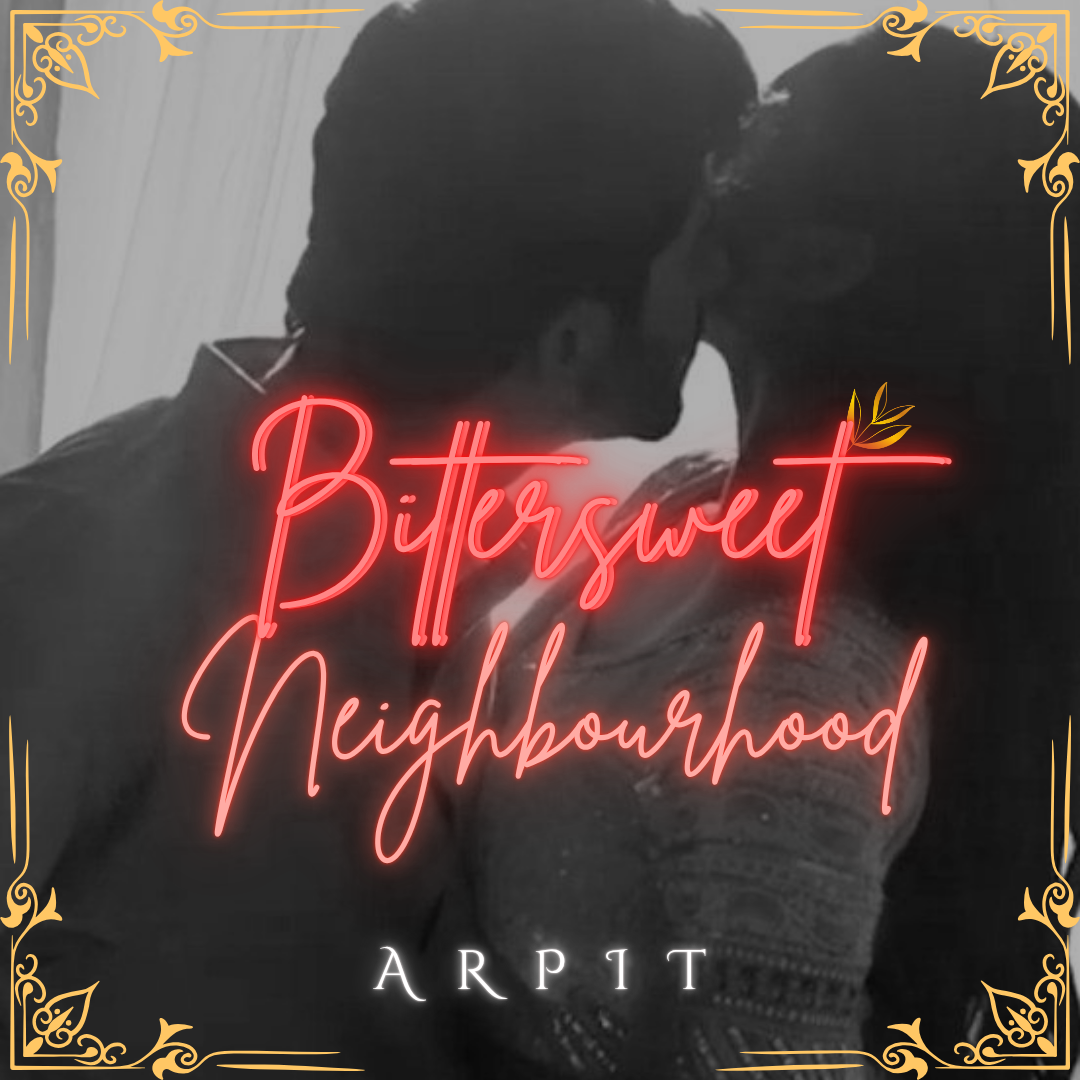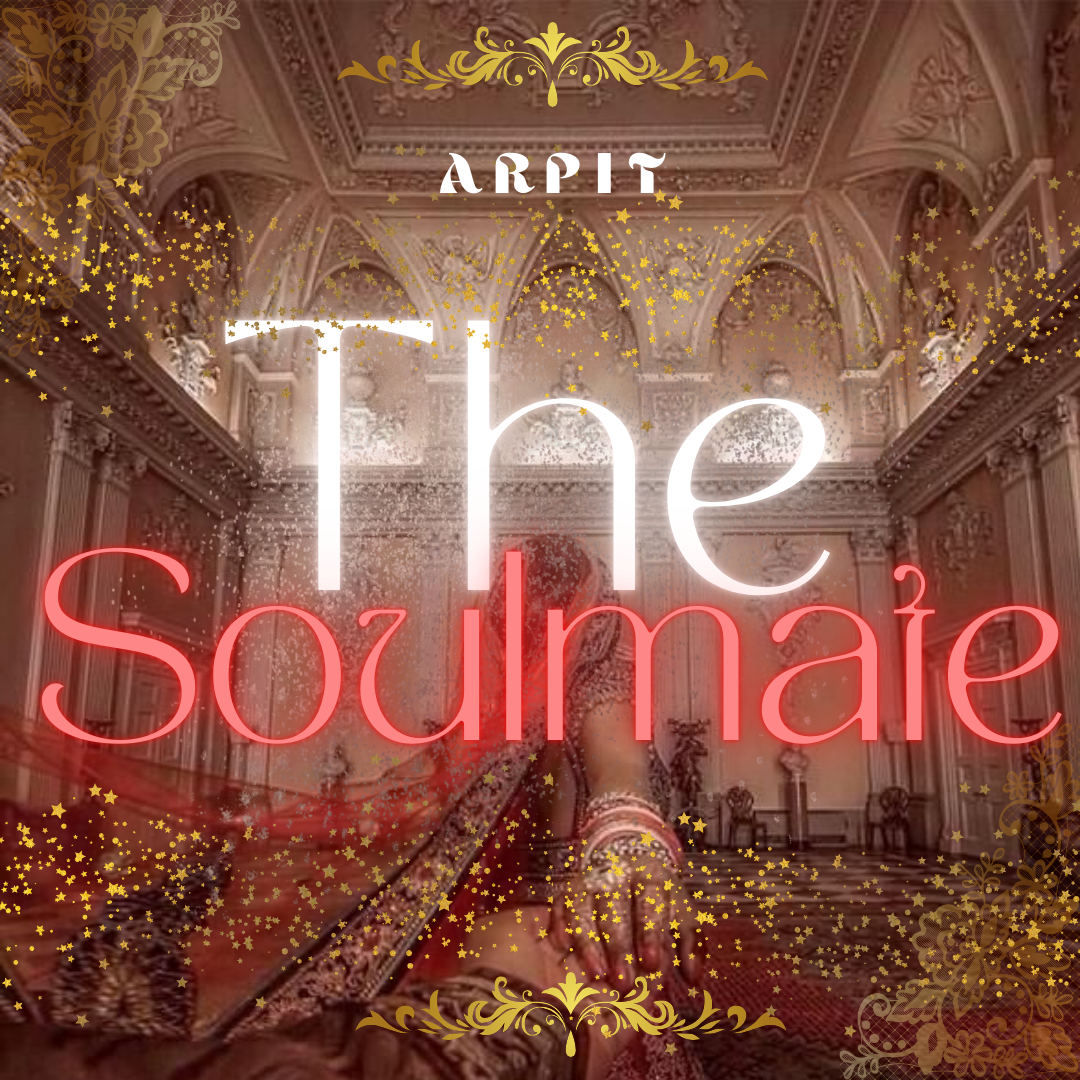
The morning sun filtered through the jaali windows of the haveli, casting delicate patterns onto the sandstone floors. The air was already warm, humming with the quiet chaos of preparation. It was the day before a holy festival, and Kamini Devi—her Bari Maa—was in one of her usual commanding moods.
"Mughda!" she called from the central courtyard, voice sharp as mustard seed in hot oil.
"Jaldi jaa aur puja ke liye saamaan le aa. Kumkum, haldi, kapoor… sab kuch likh ke diya hai. Aur haan, kisi ke ghar pe baithne ki zaroorat nahi hai. Seedha market, seedha wapas."
(Go quickly and get the items for the puja. Kumkum, turmeric, camphor… everything’s written down. And don’t sit around chatting. Straight to the market and straight back.)
Mugdha, already dressed in a bright green lehariya dupatta and a flowing red ghagra, tied the list to the corner of her dupatta and slipped her feet into faded jutti sandals. The heavy silver anklets at her feet jingled softly with each step as she passed through the haveli gates.
The Market Road
Outside, the world was different—alive with noise, color, and the scent of spice. Women walked in clusters, heads veiled, bangles clinking. Carts rolled by, carrying papayas, sugarcane, and sacks of grain. A man played the algoza flute near the well, and children chased after a stray goat through narrow alleys.
But Mugdha walked alone.
As she passed by, the local tailor's wife gave her a pitiful look, and a few boys whispered behind their palms. She ignored them.
In her village, she was both admired and watched—a girl of beauty and spirit, with the burden of an invisible cage. Her education had been cut short, her opinions brushed off, and now, she was a bride-to-be without a voice in the matter.
The Market
At the bazaar, she stopped near a stall where vibrant marigolds and jasmine garlands hung like golden waterfalls. The vendor, an elderly woman with tired eyes, handed her a fresh string.
"Shaadi ke liye le rahi ho, na beti?"
(Buying these for your wedding, aren’t you, child?)
Mugdha forced a smile.
"Puja ke liye hain."
(They’re for the puja.)
She moved on.
At the spice stall, she bought turmeric, red vermilion, and camphor, carefully folding them into a cotton bag. The sun beat down harder now, her feet dusty, her heart heavy.
On the way back, she paused near a small tea stall—the same one where Akhand had sat the night before, though she didn’t know that yet.
She turned to leave… but something made her stop.
A few local men were whispering near the corner, talking about someone new—someone who had come asking strange questions, someone from the city.
"Jeans mein tha… kisi Ranjana ka beta batata tha apne aap ko… sab jagah poochta phirta hai."
(Wearing jeans… says he’s Ranjana’s son… asking around everywhere.)
Mugdha froze.
Ranjana.
A name she had heard her mother whisper long ago, quickly and quietly, before silencing herself.
She turned slightly, pretending to look at a row of bindis on display, but her ears stayed sharp.
"Kis Ranjana ki baat kar rahe ho, Kaka?" she asked casually.
(Which Ranjana are you talking about, Uncle?)
The men looked at her with mild surprise.
"Arre… koi sheher ka aadmi aaya hai. Kahta hai uski maa iss gaon ki thi. Saari zameen dhoond raha hai. Lagta hai kuch aur matlab hai uska."
(Some city guy. Says his mother was from this village. Looking for land. But something about him feels different.)
They talked and walked away.
But Mugdha stood there a moment longer, her thoughts suddenly tangled.
Ranjana.
Zameen.
A city man who didn’t belong here.
She had no idea why the name stirred something in her chest—a spark of defiance, curiosity… maybe hope?
The village had barely stirred from sleep when Akhand sat again at the same weathered tea stall, the one spot that didn’t look at him like he was a ghost walking in daylight.
The sky was pale and wide, smeared with gold and soft cloud trails. The air smelled of chai, charred wood, and wet earth—though the land itself was dry as an old wound. His white shirt was now light brown at the shoulders, and his skin itched from two days of dust, sweat, and stubborn sunburn.
He scratched his arm, wincing.
The sensation had moved from irritation to full-blown itching madness, his skin crawling like sandflies were dancing across it.
"Bhaiya… yahan aas paas kahin nahaane ki jagah hai kya?"
(Brother… is there any place nearby where I can bathe?)
He turned to the chaiwala, who raised an eyebrow and chuckled.
"Nadi toh milti nahi yahan… par ek talaab hai. Gaon ke purab mein, kheton ke peechhe. Puraana hai, lekin paani thanda milega."
(There’s no river nearby… but there’s an old pond to the east, behind the fields. It's old, but the water’s cool.)
Another man sitting cross-legged nearby nodded, slurping tea through the side of his mouth.
"Wahan ke paas aam ke ped bhi hai. Chhaya achhi milti hai."
(There are mango trees there too. Nice shade.)
Akhand smiled faintly.
"That’s more than enough for me."
He walked past the houses and children still rubbing sleep from their eyes, past the low stone wall that marked the edge of the village. A group of buffaloes plodded lazily toward a dusty field, their hooves stirring up small clouds.
His shirt clung to his back as he made his way through the fields, guided by the vague directions of villagers and instinct. The heat was already sharp, even though it was still early.
At last, he saw it—a clearing ringed by tall grass, with ancient mango trees rising like silent sentinels around the edges. In the center, the pond shimmered softly in the morning light. The water looked still and a little murky, but its edges were clean, and a few birds dipped in for a drink.
Akhand stepped closer, crouched, and dipped his hand into the pond.
Cool.
He looked around. The place was deserted, wrapped in a kind of timeless stillness that only rural lands possess—the kind that makes a man feel like he’s stepped into a forgotten page of the world.
With no one watching, he removed his shirt, folded it over a rock, and stepped into the water.
The pond embraced him with an unexpected gentleness. He sank up to his shoulders, eyes closed, arms floating.
For the first time in days, the itch faded.
So did the fatigue.
So did the noise in his head.
Here, in the still water under mango trees, it was as if something ancestral stirred in the land—something that had always known he would return.
A faint breeze rippled the surface as a mango dropped into the grass nearby with a quiet thunk. The scent of raw fruit and cool mud filled the air.
" this pond seems cool…”
He stayed in the water for a long while.
Long enough for the dust to wash away.
But not long enough for the weight on his heart to lift.
Mugdha hadn’t meant to follow him.
But once she heard the tea stall Kaka mention a man asking about Ranjana, something inside her sparked—half suspicion, half instinct. She’d pretended to linger near the flower stall, then waited. And when she saw the man walk off toward the fields, a strange urgency took hold.
Her anklets had jingled too loudly, so she had taken them off and slipped them into her bag.
Now she was here—just past the edge of the mango trees, crouched behind the thick trunk of a neem tree. The pond lay ahead, quiet and drowsy in the morning sun, and the man she had followed was already near the water.
She hadn’t seen his face clearly. Only the line of his shoulders. The way he walked—confident, unhurried. Not like a stranger lost in a village, but someone who belonged here without asking permission.
Then he paused.
Mugdha’s breath caught in her throat.
Akhand reached for the hem of his shirt and pulled it off in one smooth motion. She instinctively ducked behind the tree, cheeks flaring with heat, eyes shut tight.
"Arre Ram! Yeh aadmi ke paas sharam bhi nahi hai kya?" she whispered to herself, flustered.
(Does this man even have any shame?)
Still, a curious voice inside her urged her to look again. Slowly, cautiously, she peeked around the tree.
She could see the curve of his back, strong and sun-darkened, the white fabric of his shirt now resting on a nearby rock. He ran a hand through his hair, glanced once toward the sky—and then reached for the button of his jeans.
Mugdha gasped and spun around, back to the tree, hands flying to her face.
"Main pagal hoon! Bilkul pagal! Kyu peeche aayi main iske?"
(I’m mad! Completely mad! Why did I follow him here?)
She covered her eyes with both hands but still didn’t move.
There was something… something strange about this moment. Like she wasn’t just watching a man at a pond—but witnessing something older, like a story that had lived here long before either of them had arrived.
A splash broke the silence.
She peeked again—just a sliver of vision through her fingers.
Akhand had jumped into the pond.
The water rippled out in slow circles, catching the light. He was submerged up to his shoulders now, eyes closed, arms out as if surrendering to the coolness. Peace washed over his face—something raw and real. Mugdha found herself staring.
He hadn’t seen her.
Didn’t know she was there.
And yet she couldn’t leave.
There was a strange thread between them now. A secret she hadn’t meant to take part in. A moment not meant to be shared—but shared anyway.
The wind picked up slightly, and a few leaves rustled above her. A mango thudded softly into the grass nearby.
She stayed hidden.
But her thoughts were loud.
"Who is he really…? What he wants?"
Sneak peek- Chapter 7
He stood, brushing the grass and grit off his legs with an annoyed sigh.
“Perfect. Do ghante se naha raha tha… aur yeh mila reward.”
("Spent two hours bathing… and this is my reward.")
Mugdha stood beside him, guilty and awkward, trying not to laugh.
“Main… bas dekh rahi thi… ki aap… doob toh nahi gaye.”
("I was just… checking… that you didn’t drown.")










Write a comment ...